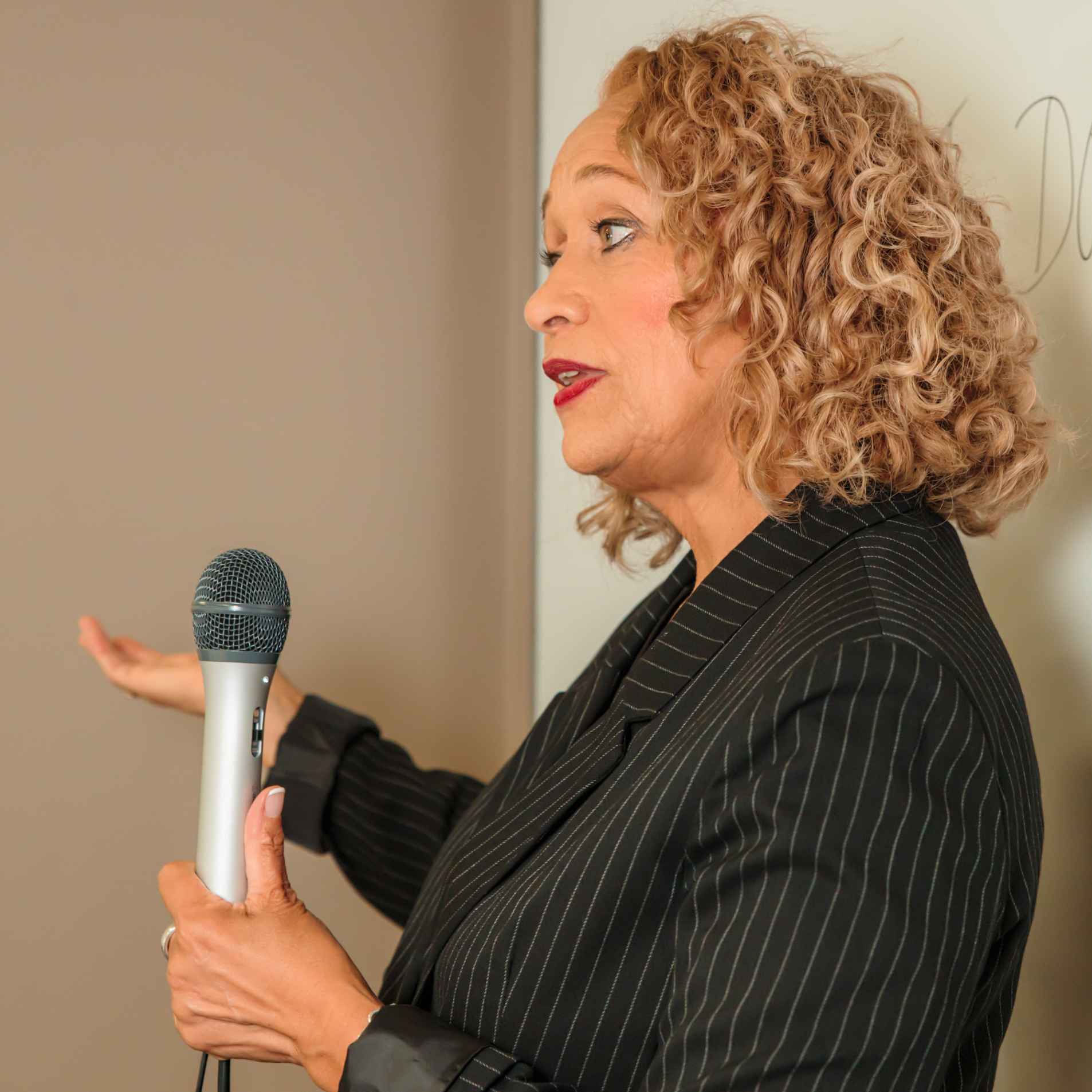“Communication is the most important skill any leader can possess.” – Richard Branson, English Business Magnate, Inventor, Philanthropist
Helen, a psychologist, who has recently started building her consulting company, has a unique offering. She has had to make a shift in her approach to work and in her way of communicating. She is no longer applying to other companies for a job as an employee, she is now making a business to business offering of a joint venture partnership with fellow psychologists. This requires a confident stance and communications mastery.
Helen needs to step up her communications mastery to a level where few people operate. She needs to take control of every conversation, showing a high level of leadership. This is not difficult to do but it requires forethought – examining the way she communicates now and making changes to ensure that every conversation is meaningful for her, as well as, the person with whom she is speaking.
Most people don’t prepare effectively for business conversations. They send off an email, leave a voicemail, or enter into a meeting casually, hoping for the best. But hope is not a strategy, so they often leave the meeting wondering “What happened?” or “Why didn’t that turn out well?”
Helen is about to have a telephone conversation with a company of psychologists whom she wants to partner with to deliver her services within her local community.
Here is how she prepares in order to show up as a confident business owner who is moving her business forward with every conversation, while at the same time making a meaningful contribution to the person with whom she is speaking. She starts by asking herself 5 simple questions.
What Outcome Do You Want From this Conversation?
Before making that telephone call, she imagines herself being confident and in control of the conversation. She thinks about the 5 questions she wants to have answered by the end of the call and she makes notes of her answers:
What specific outcome do I want from this meeting?
What outcome does the other party want?
What action do I want them to take at the end of our communication?
What action do I want to take?
When do these need to take place?
In this case, Helen wants to establish a relationship with this company where she is able to use their pool of psychologists on a contract basis to work with the clients she brings into her business.
She is in the process of growing her staff to ten full-time psychologists but needs to have a stable of contractual psychologists until the revenue from her business is able to support full-time staff.
She knows this objective is not likely to be finalized in one telephone conversation so the real objective she is concerned with is to find out whether this organization is open to the relationship. Are they are amenable to working with her? If she feels comfortable with negotiating with them during this first conversation, she can go to the next step – set a time for a face to face meeting where they can have a deeper conversation to establish all the parameters for working together. This would be a joint venture, where both businesses will grow from the association.
Helen writes down her objectives and her questions and keeps them handy to refer to them as the meeting progresses.
Listen to Understand What the Other Party Wants
A communications master listens to understand the other person’s pain and needs. Imagine your audience asking this question. “What’s in this for me?” After every idea, you present to them, make sure you answer this question. Know that they may never voice that question but it will be in their mind. Show that you are thinking about their welfare and you are invested in alleviating their pain and satisfying their needs. Show them how they will benefit in your relationship.
This is an area that most people neglect, to their detriment. They are so busy pointing out the bells and whistles of their product or service, they never take the time to find out what that true pain point is.
Until you are able to articulate your prospect’s pain by saying back to them what you heard them say, you will never get to the outcome they want. This means you will never get to the outcome you want from the conversation.
Making the connection between the needs of your prospect and the opportunity you are presenting assures your prospect that they are understood. Understanding leads to trust. Without this trust, you will fail.
The reference to your prospect’s pain must be addressed in every communication going forward – email, voicemail, and in-person meetings. This will create momentum toward a strong relationship.
Forget About Win-Win. Just Show Gratitude
This third secret has to do with mindset. How we show up in a conversation makes all the difference in how we are received. Sure, you know the outcome you want, but once you have decided on an outcome, it’s time to go into the conversation with the idea of enjoying the conversation. The more gratitude you have, the more you will enjoy.
Gratitude kicks your brain into high gear. It gives you the happiness advantage. It allows you to raise the level of the conversation for you and all the participants. Gratitude gives you the positivity Shawn Achor talks about in the happiness factor. “With your brain at positive your creativity rises, your intelligence rises, your energy level rises … every single outcome level improves. Your brain at positive is 31% more productive than at neutral, negative, or stressed … Your 37% better at sales …”
Gratitude allows you to have a vibe that people are drawn to and isn’t that what you want? If you make the meeting positive and enjoyable you will get the outcome you want. The person you are talking with, on the telephone, will want to book a face-to-face meeting so that you can have a deeper conversation, build a stronger relationship, and work together to enhance both your businesses.
Make It Easy to Follow Up. Always Confirm the Next Meeting Before You Leave
Here is secret number 4. Never leave your present meeting without confirming the follow-up meeting.
If you don’t do this, you will find yourself chasing people down to get on their schedule. Put it in your schedule before you hang up the telephone, or before you leave their office. Make it easy for you and them to continue your conversation.
Achieving Communication Mastery
Helen booked the face-to-face meeting, which was the objective of her telephone conversation.
By integrating these four principles into her conversations, she is exponentially increasing the effectiveness of her communications. She is achieving more, in less time, with less effort. She is achieving communication mastery. What’s more she is having more fun while growing her business.
Why not try it? Before your next conversation, adjust your attitude to one of gratitude. Say to yourself, “I am grateful to be having this conversation”. Keep the outcome you want in mind as you rehearse your attitude of gratitude. See how much fun you can have with this.
Want to follow my process as I work my way towards publishing my first book? Please, like my posts and subscribe to my blog here.
Faith Evan West will show you through the transformative power of coaching exactly how to build your unique unshakeable confidence, be the leader of choice to your ideal people & create the work and lifestyle you want.




0 Comments